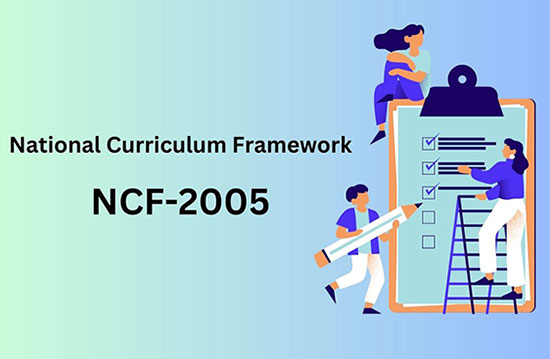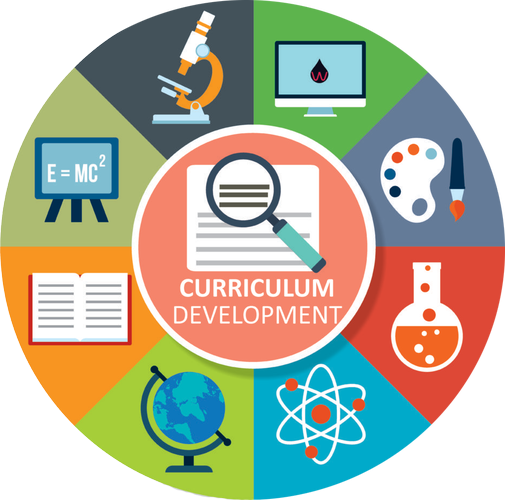National Curriculum Framework (NCF 2005): A complete and comprehensive guide in 2024
Get Your Free Trial Now!
National Curriculum Framework (NCF 2005)
Education is the method to the future and victory of the Nation and its youth. As the focal point of the instructive scene, the National Curriculum Framework (NCF) fills in as the directing report that directs educational program advancement, the academic methodology, and the evaluation ideal models.
In 2005, India saw a huge step with the presentation of the National Curriculum Framework (NCF 2005) which was intended to change the school system to be in accordance with the consistently powerful requirements of the 21st century.

NCF 2005: A Historical Outlook

For us to assimilate the NCF 2005, we should immerse ourselves in the historical occasion that preceded its performance. The early frameworks, such as NC 1986 and NC 2000, have paved the way for educational reforms focusing on a learner-centred approach. Nevertheless, a paradigm shift occurred when NCF 2005 adopted a total and integrated approach to education.
The fundamental beliefs of the NCF 2005 inclusivity, versatility, and significance give the premise to the association's central goal and vision. It perceives the socio-social situation of India, which is so varied, and requires a schooling system that likewise sees the singular distinctions and possibilities of each and every understudy. It gives the foundation for conferring thinking abilities, creation, and learning of the subject from top to bottom, breaking the shackles of simply recalling in prior times.
Curriculum Development: Promoting an Integrated Strategy
The NSQF is actually based on the categories of qualifications, which in turn represent a specific skill set and educational attainment at ten levels. These levels are an instrument to help ease an individual’s skill development journey.
One of the major features of NCF 2005 is its focus on active learning and the use of the active way. The model is based on the view that the lecturing method should be replaced with interactive and involved teaching strategies. This change encourages the engagement of learners in the process and creates a curiosity to learn and develop. NCF 2005 acknowledges teachers as facilitators who lead students in the learning process rather than the recipients of knowledge. Thus, teachers get immense opportunities to create dynamic and significant educational activities.

Inclusivity and Variety

Basic Standards of the National Curriculum Framework (NCF), 2005: widening admittance to training with regards to a pluralistic India is among the highest needs. NCF 2005 transforms the issue of heterogeneity through developing a curriculum that is aware of the varied linguistic, cultural, and socio-economic backgrounds of the students. The guidelines promote the use of various languages in the lesson, appreciating the role linguistic diversity has in helping individuals develop their cognitive abilities.
In addition, NCSS 2005 reiterates that in the curriculum, indigenous knowledge should be included. Conducting a gap analysis can help identify areas where indigenous knowledge is currently lacking or underrepresented. The framework emphasizes the written and oral traditions, arts, and crafts of India, as well as their relevance for education. Thus, this links students to their ancestors and can, at the same time, give them a sense of belonging and pride
Don’t Miss Out : New Education Policy (NEP 2020): Advantages & Disadvantages
Assessment Reforms
NCF 2005 suggests a paradigm shift in the assessment system, making it more multifaceted rather than uni-dimensional based on only examinations. The framework stimulates a sophisticated assessment system that relies not only on rote memorization but also on knowledge application. The ultimate goal of this approach is to identify the overall development of a student, which should take place by systematically recognizing the unique features of each student.
The NCF 2005 focus on formative assessment methods enhances the timely provision of feedback by teachers, an approach that enables students to reflect on their learning and take appropriate corrective measures. Through this approach, it is the creation of a growth mindset, where mistakes are perceived as opportunities from which to learn and grow. The framework proposes a related assessment system that pursues the same objectives as education by guiding students towards life outside the classroom.

Challenges and Criticisms

An important issue is the disparity in the implementation and administration of policies throughout the nation and different regions. The problem of different interpretations of the text by different countries in the implementation of NCF 2005 makes it difficult for them to achieve the national goals of NCF 2005 uniformly.
Another drawback of this system is that it is reluctant to adapt to changes and is not flexible enough. The move from a conservative to a more progressi vist method necessitates both structural changes and a change of mindset at various levels. The NCF 2005 requires the concurrence and support of teachers, parents, and policymakers with regard to the basic idea and the level of implementation.
Read Also: GAP ANALYZER
Conclusions about National Curriculum Framework (NCF 2005):
The National Curriculum Framework (NCF) 2005 acts as the flag bearer for education reforms, trying to outline the shape and process of learning in India. The model portrays features like inclusivity, experiential learning, and holistic development, which is a vision for a progressive national education system. This impact, however, will mostly be determined by the capacity of the government to implement the framework, the capacity to address challenges, and creating an environment of collaborative working among the stakeholders. Indeed, while India moves ahead on its educational transformation journey, the principles embedded in NCF 2005 still act as essential compasses.
The desired goal of the framework of raising comprehensively educated individuals with critical thinking skills and strong cultural identity will be a key factor for the youth of the present century to prosper and accept the complexity of the 21st century.

FAQs about National Curriculum Framework (NCF 2005)
What do you mean by the National Curriculum Framework (NCF) 2005, and what makes it a huge change in training?
The NCF 2005 is an exceptionally complete record that frames the strategy for educational program improvement, teaching methods, and tests. It has extraordinary significance since it caught the essence of a change in perspective from for the most part divided and educator-focused to a coordinated and student-centered plan of school systems to adapt to the high speed of the 21st century.
What is the contrast between NCF 2005 and its ancestors, for example, NCF 1986 and NCF 2000?
The NCF 2005 takes the center regions developed in the past versions and looks to grow them regarding inclusivity, significance, and adaptability. Recognized from its precursors, it is diverse in planning the educational programs, zeroing in on dynamic and experiential learning, interdisciplinary information, and the ceaseless mixing of curricular and co-curricular exercises.